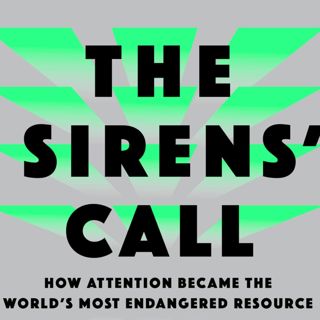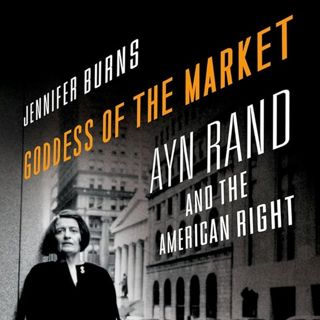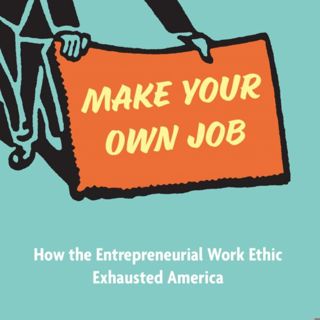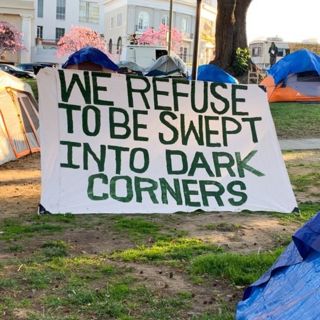![How Bad Is It? [TEASER]](https://cdn.podme.com/podcast-images/EBFD924E42E2755CDE2DCB609C1A5896_small.jpg)
How Bad Is It? [TEASER]
Listen to the rest of this premium episode by subscribing at patreon.com/knowyourenemyJust over a month into Trump's second term, Matt and Sam offer their thoughts on where we're at—and, to be blunt, the assessment is fairly depressing. They take stock of the troubling truth that Pete Hegseth's confirmation reveals about Trump's hold over the Republican Party, new FBI director Kash Patel's conspiratorial children's books, the state of the conservative legal movement, the right's relatively recent embrace of unbounded executive power, what the Democrats can do to fight back, and more.Sources:Pope Francis, "Letter of the Holy Father Francis to the Bishops of the United States of America," Feb 10, 2025Jonathan Swan & Maggie Haberman, "Power, Intimidation and the Resurrection of Trump’s Support for Hegseth," New York Times, Dec 12, 2024Gabriel Sherman, "'They’re Scared Shitless': The Threat of Political Violence Informing Trump’s Grip on Congress," Vanity Fair, Feb 19, 2025Jude Joffe-Block, et al, "How Kash Patel has Used Children's Books and Podcasts to Promote Conspiracy Theories," NPR, Dec 10, 2024Heidi Przybyla, "Leonard Leo Used Federalist Society Contact to Obtain $1.6B Donation," Politico, May 2, 2023James Burnham, Congress and the American Tradition(1959)
24 Feb 4min

Pay Attention! (w/ Chris Hayes)
We're all anxious, and none of us can pay attention. We don't read long books anymore; our kids don't read at all. When we watch TV, we scroll at the same time. And we absolutely cannot be alone with ourselves. These are the symptoms of a modern malaise that is everywhere diagnosed but rarely treated with the dire seriousness it deserves: an epochal sickness that is fundamentally changing the way we relate to each other and to our own minds. What would it take to reclaim control? Chris Hayes — journalist, author, and host of MSNBC's All In — joins to discuss his new book The Sirens' Call: How Attention Became the World's Most Endangered Resource. Together, Chris and the boys theorize how attention replaced information as the defining commodity of modern life. Along the way, we discuss our own struggles with social media addiction, prayer as an ancient technology for organizing attention, the evolutionary origins of attention-seeking, Donald Trump as the "public figure par excellence" of the attention age, and how to fight back against the corporate takeover of our minds. Toward the end, Chris explains how he's navigating hosting his cable show amid another bewildering Trump era, which seems designed to divide and fragment our attention.Further Reading: Chris Hayes, The Sirens' Call: How Attention Became the World's Most Endangered Resource, (2025)Simone Weil, Gravity and Grace, (1952)Adam Phillips, Attention Seeking, (2022)Karl Marx, Economic and Philosophic Manuscripts of 1844, (1844)Kyle Chayka, FIlterworld: How Algorithms Flattened Culture, (2024)Shoshana Zuboff, The Age of Surveillance Capitalism: The Fight for a Human Future at the New Frontier of Power, (2019)Daniel Immerwahr, "What if the Attention Crisis Is All a Distraction?" The New Yorker, Jan 20, 2025....and don't forget to subscribe to Know Your Enemy on Patreon to listen to all of our premium episodes!
18 Feb 1h 1min
![MAGA x DOGE, So Far (w/ John Ganz) [TEASER]](https://cdn.podme.com/podcast-images/8400BD8AE01DA2E60DFA41ED18D18AF3_small.jpg)
MAGA x DOGE, So Far (w/ John Ganz) [TEASER]
Listen to the rest of this premium episode by subscribing at patreon.com/knowyourenemyThe first three weeks of Donald Trump's second administration have seen a flurry of vicious executive orders aimed at the federal workforce, trans people, government agencies, and others—all while Elon Musk and his deranged band of young sociopaths, otherwise known as the "Department of Government Efficiency," have been set loose on the Treasury's payment system and other key functions of the state. In this episode, we talk with John Ganz to try to make sense of it all: how to avoid getting sucked into the political quicksand of debating conservatives about line items in a budget, what Trump and Musk really want, how "presidential" political systems break down, and, generally, how to think about What's Happening Now.Sources:James Burnham, The Machiavellians: Defenders of Freedom (1943)— The Managerial Revolution: What Is Happening in the World (1941)George Orwell, "Second Thoughts on James Burnham," Polemic, May 1946John Ganz, "What Happened Here," Unpopular Front, Feb 4, 2024Nathan Tankus, "Elon Musk Wants to Get Operational Control of the Treasury’s Payment System," Notes on the Crises, Feb 3, 2024Karen Yourish, et al, "All of the Trump Administration’s Major Moves in the First 17 Days," New York Times, Feb 6, 2024Yoni Applebaum, "America's Fragile Constitution," The Atlantic, Oct 2015Eric Rauchway, Why the New Deal Matters (2021)
8 Feb 2min

Ayn Rand Against the World (w/ Jennifer Burns)
An atheist, a radical for capitalism, a caricature of a greedy libertarian, a best-selling novelist, a difficult partner and passionate lover, and the self-proclaimed greatest philosopher since Aristotle: Ayn Rand was many things, and we talk about almost all of them in this epic episode. To do so, we called upon historian Jennifer Burns, whose intellectual biography, Goddess of the Market: Ayn Rand and the American Right , is enormously helpful in trying to understand an idiosyncratic writer who, both then and now, fits ambiguously into the "fusionist" post-war conservative movement. Rand remains a controversial figure whose ideas permeate our culture and continue to inspire some of the most consequential (and least appealing) political figures in the United States. To understand Rand and her influence, we examine her family's experiences during and after the Russian Revolution, her journey to the U.S. and early success in Hollywood, the arduous path she trod to become a writer, Rand's involvement in anti-New Deal politics in the 1930s and 40s, her ideas, philosophy, and scandalous personal life, and much more.Sources:Ayn Rand, The Fountainhead (1943)— Atlas Shrugged (1957)— We the Living (1936)Jennifer Burns, Goddess of the Market: Ayn Rand and the American Right (2009)— Milton Friedman: The Last Conservative (2023)Whittaker Chambers, "Big Sister Is Watching You," National Review, Dec 28, 1957Murray Rothbard, "The Sociology of the Ayn Rand Cult," (1972)Mary Gaitskill, Two Girls, Fat and Thin (1991)Lisa Duggan, Mean Girl: Ayn Rand and the Culture of Greed, (2019)— "Ayn Rand and the Cruel Heart of Neoliberalism," Dissent, May 20, 2019.Adam Curtis, All Watched Over by Machines of Loving Grace, (2011)Listen again:"Milton Friedman and the Making of Our Times," Dec 3, 2023...and don't forget to subscribe to Know Your Enemy on Patreon to listen to all of our premium episodes!
3 Feb 2h
![How Republics End (w/ Mike Duncan) [TEASER]](https://cdn.podme.com/podcast-images/21FD459485444D43863FA6ACDC342CF3_small.jpg)
How Republics End (w/ Mike Duncan) [TEASER]
Listen to the rest of this premium episode by subscribing at patreon.com/knowyourenemyA stock rhetorical trope on the right is to invoke ancient Rome when talking about American decline—often making direct comparisons between the Goth invaders and contemporary immigrants, obsessing over homosexuality and Rome's fall, and more. If their understanding of history isn't very serious, what should we make of these appeals? And are there any "lessons" we should learn from Roman history?There's no better time to take up such matters than while Matt is in Rome, and there was no one better for him to talk with about them than Mike Duncan, the prolific and brilliant history podcaster; he currently hosts the Revolutions podcast and, especially relevant for the purposes of this conversation, hosted the History of Rome podcast from 2007-2012, a project that led him to write The Storm Before the Storm: The Beginning of the End of the Roman Republic (2017). Matt and Mike discuss the use and abuse of history, how "norms" do and do not matter, the relationship between imperialist foreign policy and domestic politics, the perils of vast income inequality, then and now, and more.Sources:For quotes from conservatives about Roman decline: Reagan, Nixon, Buchanan, Vance (and Pete Navarro & Michael Anton)Mike Duncan, The Storm Before the Storm(2017)— Hero of Two Worlds: The Marquis de Lafayette in the Age of Revolution (2021)
28 Jan 2min

The Entrepreneurial Ethic & How We Work Today (w/ Erik Baker)
This is a fascinating episode that takes up thinkers that the podcast has covered before—the Koch brothers, Austrian economists like Ludwig von Mises and Friedrich Hayek, and others—but from a different angle: that of the entrepreneurial work ethic. Historian Erik Baker's superb book on the topic, Make Your Own Job: How the Entrepreneurial Work Ethic Exhausted America, offers a genuinely absorbing tour of this most American of ideologies, one that has emerged again and again, in various guises and in different circumstances, to reconcile workers to the contradictions of the U.S. economy, especially the shortage of jobs that has come with its many "innovations" and changes. What are the historical and even spiritual sources of the entrepreneurial work ethic, and what ideological needs does it serve for bosses and managers? Why is it so seductive to Americans? How does it relate to deeply American impulses relating to responsibility, guilt, and shame? In what ways did the entrepreneurial work ethic serve U.S. aims during the Cold War? And how has it endured in our age of Silicon Valley tech overlords and Donald Trump, entrepreneur, being re-elected? We take up these questions and many more in this rich conversation.Sources:Erik Baker, Make Your Own Job: How the Entrepreneurial Work Ethic Exhausted America (2025)— "Fairytale in the Supermarket," The Baffler, Jan 14, 2025Dale Carnegie, How to Win Friends and Influence People (1936)Norman Vincent Peale, The Power of Positive Thinking (1952)Sarah Jaffe, Work Won't Love You Back: How Devotion to Our Jobs Keeps Us Exploited, Exhausted, and Alone, (2021)Listen again:"Bomb Power" (w/ Erik Baker), Dec 19, 2023...and don't forget to subscribe to Know Your Enemy on Patreon to listen to all of our premium episodes!
21 Jan 1h 36min

UNLOCKED: Are Progressives to Blame for Urban Disorder? (w/ Hayes Davenport)
A bunch of you requested that we un-paywall this recent bonus episode, which features some highly practical insights for organizers, volunteers, and public servants. So we have! (All the other bonus episodes are good too; please subscribe.)—Right wing movements thrive by cultivating fears of disorder. Conservatives depict blue cities as sites of rampant crime, chaos, and iniquity. And often enough, it is progressives — with their overdeveloped empathy and concern for the poor and criminalized — who take the blame. Recently, a rising chorus of voices on the center-left, including figures like Ezra Klein, have embraced the thesis that perceptions of disorder in cities like New York, Chicago, Los Angeles, and San Francisco have contributed to America’s rightward turn. But is that accurate? And can anything be done about it?In this episode, Sam is joined by organizer, writer, and podcaster Hayes Davenport to discuss his experiences fighting against this sort of backlash in Los Angeles. As soon as Hayes had helped his friend Nithya Raman get elected to the LA City Council in 2020 and joined her staff, conservative forces in city government mobilized to thwart her pro-tenant agenda and blame the tiny faction of progressives on the council for rising crime and homelessness. How did they respond? What can the past few years in LA politics teach the American left? And can we imagine a leftist politics that short-circuits the right’s effort to use disorder to undermine our efforts to address its underlying causes: government neglect, poverty, and exploitation. We discuss! Further Reading:Hayes Davenport, "Ezra Klein is wrong about this," Big City Heat, Dec 9, 2024.— "Violent crime is down. Why are so many people mad about it?" Big City Heat, Dec 16, 2024.— "Sects on the Beach: The 2024 Santa Monica City Council Race," Big City Heat, Nov 1, 2024.— "The Last LA Election When Crime Was Going Up For Real," Big City Heat, Nov 11, 2024.Emily Badger & Alicia Parlapiano, "Is the Urban Shift Toward Trump Really About Democratic Cities in Disarray?" NY Times, Dec 6, 2024.Jill Cowan, Serge F. Kovaleski, & Leanne Abraham, "How a New City Council Map of L.A. Turned Into a Political Brawl," NY Times, Sept 3, 2023.Koko Nakakjima & Phi Do, "California and Los Angeles County are getting tougher on crime. Here are the maps that show it," LA Times, Dec 30, 2024.Jay Caspian Kang, "Who Really Controls Local Politics?" NY Times, Oct 11, 2021.— "How Homeowners’ Associations Get Their Way in California," NY Times, Oct 14, 2021.— "A Leader They Didn’t Choose," NY Times, Oct 18, 2021.Subscribe to Hayes's podcast: Hollywood Handbook and Friends.
10 Jan 56min
![Are Progressives to Blame for Urban Disorder? (w/ Hayes Davenport) [Teaser]](https://cdn.podme.com/podcast-images/42B8DA185DFEF7BA85BC3EE2787FFF4C_small.jpg)
Are Progressives to Blame for Urban Disorder? (w/ Hayes Davenport) [Teaser]
Listen to the rest of this premium episode by subscribing at patreon.com/knowyourenemyRight wing movements thrive by cultivating fears of disorder. Conservatives depict blue cities as sites of rampant crime, chaos, and iniquity. And often enough, it is progressives — with their overdeveloped empathy and concern for the poor and criminalized — who take the blame. Recently, a rising chorus of voices on the center-left, including figures like Ezra Klein, have embraced the thesis that perceptions of disorder in cities like New York, Chicago, Los Angeles, and San Francisco have contributed to America’s rightward turn. But is that accurate? And can anything be done about it?In this episode, Sam is joined by organizer, writer, and podcaster Hayes Davenport to discuss his experiences fighting against this sort of backlash in Los Angeles. As soon as Hayes had helped his friend Nithya Raman get elected to the LA City Council in 2020 and joined her staff, conservative forces in city government mobilized to thwart her pro-tenant agenda and blame the tiny faction of progressives on the council for rising crime and homelessness. How did they respond? What can the past few years in LA politics teach the American left? And can we imagine a leftist politics that short-circuits the right’s effort to use disorder to undermine our efforts to address its underlying causes: government neglect, poverty, and exploitation. We discuss! Further Reading:Hayes Davenport, "Ezra Klein is wrong about this," Big City Heat, Dec 9, 2024.— "Violent crime is down. Why are so many people mad about it?" Big City Heat, Dec 16, 2024.— "Sects on the Beach: The 2024 Santa Monica City Council Race," Big City Heat, Nov 1, 2024.— "The Last LA Election When Crime Was Going Up For Real," Big City Heat, Nov 11, 2024.Emily Badger & Alicia Parlapiano, "Is the Urban Shift Toward Trump Really About Democratic Cities in Disarray?" NY Times, Dec 6, 2024.Jill Cowan, Serge F. Kovaleski, & Leanne Abraham, "How a New City Council Map of L.A. Turned Into a Political Brawl," NY Times, Sept 3, 2023.Koko Nakakjima & Phi Do, "California and Los Angeles County are getting tougher on crime. Here are the maps that show it," LA Times, Dec 30, 2024.Jay Caspian Kang, "Who Really Controls Local Politics?" NY Times, Oct 11, 2021.— "How Homeowners’ Associations Get Their Way in California," NY Times, Oct 14, 2021.— "A Leader They Didn’t Choose," NY Times, Oct 18, 2021.Subscribe to Hayes's podcast: Hollywood Handbook and Friends.
5 Jan 3min






















